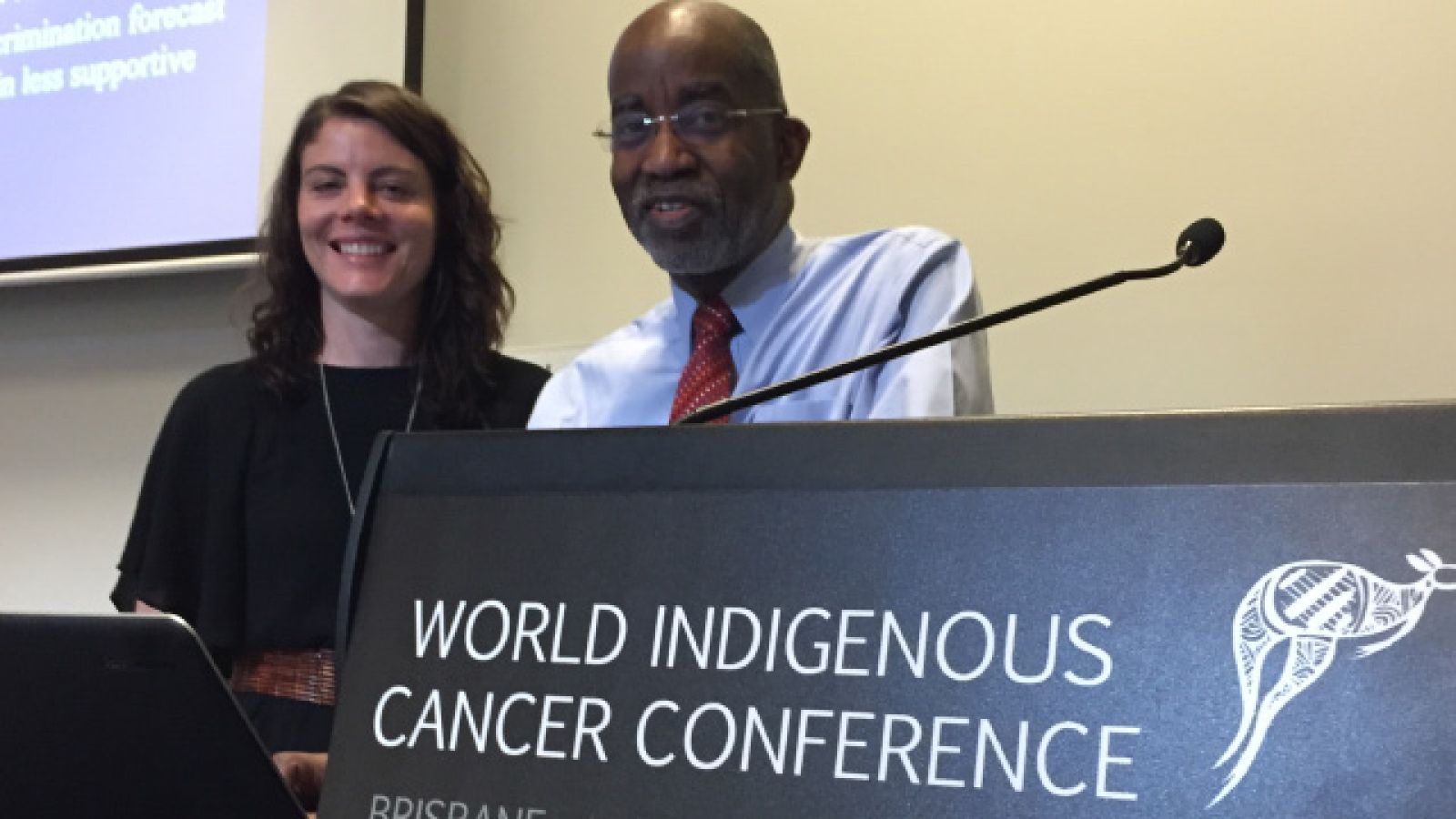ANU scholar wins fellowship to study racism and child development

Dr Naomi Priest, winner of a NHMRC fellowship, and Prof David R Williams. Image: Supplied
A health and social scientist at The Australian National University has won a prestigious National Health and Medical Research Council (NHMRC) Career Development Fellowship to further her research into how early life adversity and racism damage children’s development.
Dr Naomi Priest’s achievement is a feat because the fellowships, the equivalent of the Australian Research Council’s Future Fellowship, are highly competitive with success rates of less than 13% and only 60 fellowships awarded nationally in 2016. Only 20 of these went to women, with the success rates for female applicants eight percent highlighting how tough it is for women in science.
“I was really excited to join the ANU Centre for Social Research Methods in 2015,” Dr Priest says.
“This fellowship will now allow me to build on my research over the next four years and have dedicated resources to put to that work."
Her project How does early life adversity “get under the skin” to influence lifelong health? will identify opportunities for preventative health among Aboriginal children, and among children from ethnic minority groups.
Dr Priest has studied children’s health and social determinants for more than a decade, sparked while working as an occupational therapist with children and families in South Australia.
“Often when we think about child health and development, and about stress and resilience factors in early life, we tend to think about it from a majority lens, and to focus on more ‘traditional’ stressors such as poverty, abuse and family conflict, even if it’s subconsciously and unintentionally, Dr Priest says.
“These stressors are all important of course, but the unique exposures or stressors and also resiliency factors, in the lives of children and families of Aboriginal backgrounds, and in the lives of children and families from many migrant groups, often get forgotten.
“Racism is one of those unique social exposures in their lives that can have lasting effects.”
Dr Priest explored Aboriginal understanding of child wellbeing in her NHMRC scholarship-funded doctorate, and delved deeper into understanding how racism impacts on child health and development in her NHMRC funded post-doctoral work. She was then a visiting scientist at Harvard University with Harvard's David R. Williams, a Florence Sprague Norman & Laura Smart Norman Professor of Public Health Professor of African and African American Studies and of Sociology.
“That visit really strengthened my thinking about how stress accumulates and combines to influence child health and well-being,” she explains.
“We know that children of marginalised backgrounds often experience high levels of those more ‘traditional’ stressors, but then they also experience that added burden of discrimination and racism, which of course is also a driver of a lot of those stressors.”
Learning more about how those stressors can become biologically-embedded will allow Dr Priest to ultimately identify mechanisms she’ll propose for interventions and informing government policies.
Dr Priest’s project will include analysing existing longitudinal data sets such as the Longitudinal Study of Indigenous Children and the Longitudinal Study of Australian Children, conducting her own data collection, and working with interested community and cultural groups.